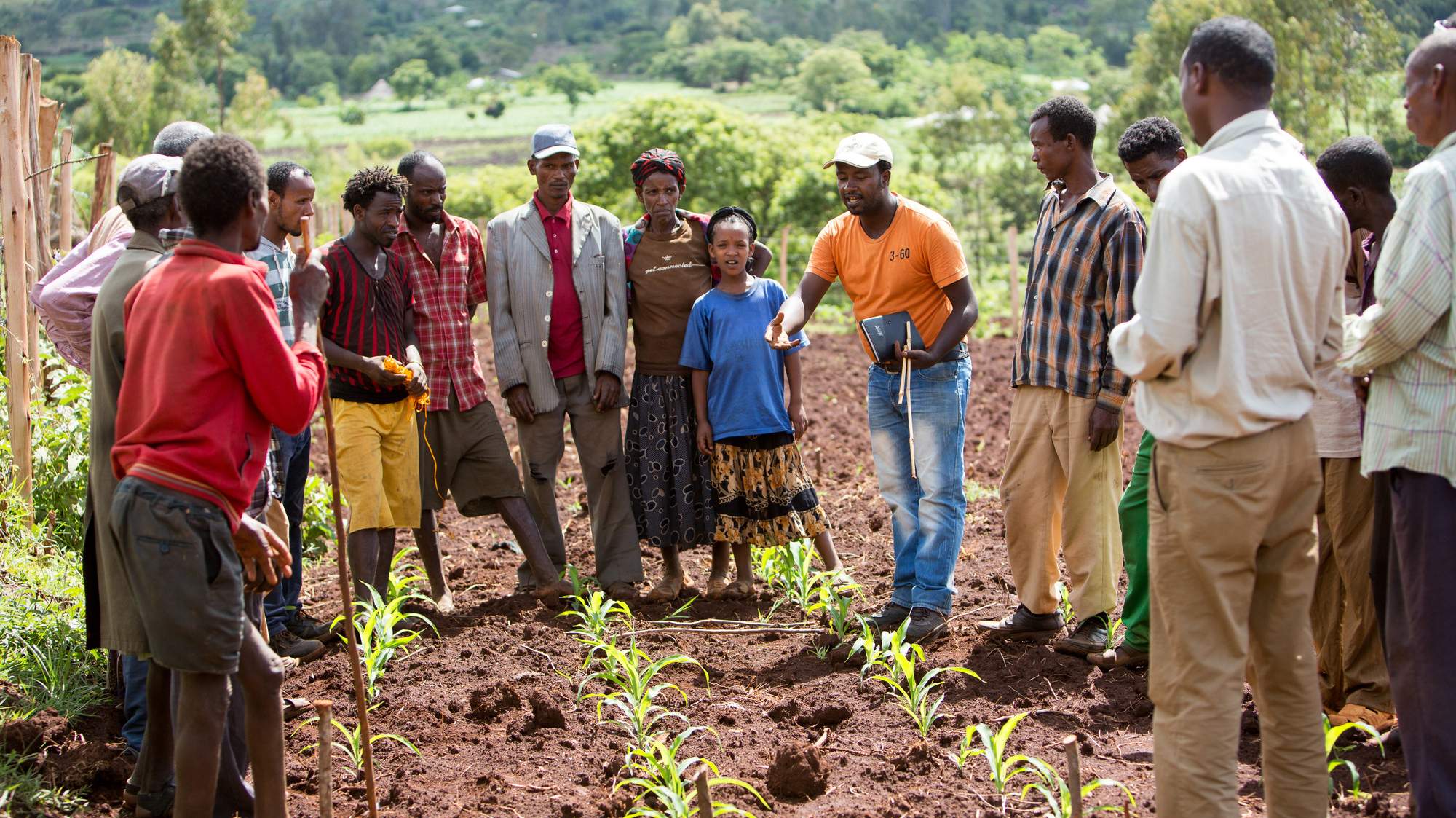We all know what it’s like to feel hunger pangs. To understand what severe hunger feels like, consider these questions:
- In the past month, was there ever no food of any kind to eat in your house because of lack of resources to get food?
- In the past month, did you or any household member go to sleep at night hungry because there was not enough food?
- In the past month, did you or any household member go a whole day and night without eating anything at all because there was not enough food?
Nuru Ethiopia (NE) chose to work in Boreda Woreda because households are experiencing severe levels of hunger. These were some of the questions that NE Monitoring and Evaluation (M&E) asked while conducting baseline and follow-up harvest surveys. Taking a sample from five kebeles, or neighborhoods, M&E looked at the difference between NE households receiving agricultural inputs and those that did not, in terms of the volume of crops produced, how this impacted the household’s overall degree of hunger (if any), and household income. Three kebeles utilized Nuru supplied inputs and two kebeles did not.
The results of this past harvest season are detailed in the 2014 Nuru Ethiopia Agriculture Program Impact Assessment. This report shows that NE households who received agricultural inputs:
- Increased their crop yields by 91% from baseline to follow-up;
- Are less likely to be classified as experiencing “low to severe” hunger;
- Increased their agricultural income by 92%.
Based on the data collected to date, NE households are producing greater crop yields, experiencing less hunger, and generating more income than non-Nuru farmer households overall. We invite you to read our full report and share your thoughts by leaving a comment below.


